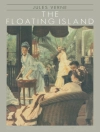Edgar Saltus’s ‘Eden: An Episode’ is a richly layered exploration of human desire and existential conflict, framed within a philosophical narrative that delves into the complexities of love, identity, and creation. Through a distinctive prose style characterized by lyrical beauty and incisive wit, Saltus weaves a meditative tale that subverts traditional notions of paradise. The text is deeply embedded in the literary context of the late 19th century, reflecting the era’s preoccupations with Darwinism, moral ambiguity, and the metaphysical undercurrents of life, as Saltus reinterprets the myth of Eden to portray an intricate allegory of humanity’s eternal search for meaning and fulfillment. Edgar Saltus, an esteemed yet often overlooked literary figure, was greatly influenced by the tumultuous societal shifts of his time, including the rise of modernism and the philosophical inquiries of existentialism. His varied career spans journalism, literature, and philosophical writing, leading him to articulate profound thoughts on the human condition, often illustrated by vivid imagery and symbolic narratives. This intellectual background offers a lens through which readers can appreciate the depth and nuance of ‘Eden: An Episode, ‘ as Saltus’s personal and literary experiences converge to create a thought-provoking text. I highly recommend ‘Eden: An Episode’ to any reader seeking an engrossing and philosophical narrative that challenges conventional paradigms of happiness and existence. Through Saltus’s vivid storytelling and keen observations, readers are invited to reflect on their own beliefs and desires, making this work a timeless piece that resonates across generations.
Об авторе
Edgar Saltus, an American writer known for his highly refined prose style and themes of decadence and aestheticism, was a vivid figure in the late 19th and early 20th-century literary world. Born on October 8, 1855, in New York City to a wealthy and influential family, Saltus pursued law at Columbia College, only to realize his true passion lay in literature. He travelled extensively in Europe, where he absorbed the works of the French decadents, which greatly influenced his own writing. His oeuvre is known for its dark romanticism and baroque flourishes, often exploring the paradoxes of human experience and the haunting transience of beauty and life. A prolific author, Saltus produced both fiction and non-fiction, with a notable work being ‘Eden: An Episode’ (1888), a novel which encapsulates his preoccupation with the disintegration of aristocracy and the ennui of high society. Similar themes pervade his other works, such as ‘The Pace That Kills’ (1888) and ‘Imperial Purple’ (1892), the latter being a testament to his fascination with historical figures and the inevitable decay of empires. Despite his erudition and distinctive style, Saltus did not enjoy widespread popularity during his lifetime, but he was held in high regard by fellow writers, counting Oscar Wilde among his admirers. Saltus’s literary contributions, though not mainstream, continue to attract scholarly attention for their artistic value and insight into the fin de siècle sensibility. Edgar Saltus passed away on July 31, 1921, leaving behind a richly textured legacy in American letters that continues to be explored and appreciated.












